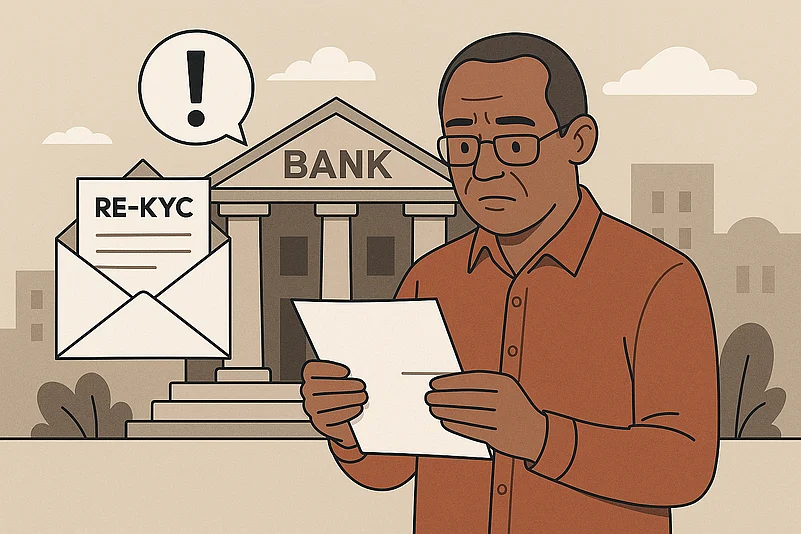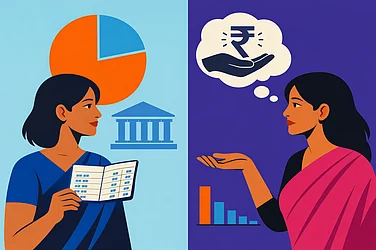
Summary of this article
RBI mandates regular re-KYC to keep bank records updated and fraud-free.
Customers must update address, ID, or contact changes; else, file a declaration.
Ignoring re-KYC can freeze accounts—credits allowed, but withdrawals blocked.
Updates can be done at branches, camps, or via limited digital options.
Many account holders have been receiving text messages and emails from their banks over the past few weeks with a familiar instruction: update your KYC details. While it may look like just another automated reminder, it is part of a mandatory exercise directed by the Reserve Bank of India (RBI). Accounts that are not refreshed in time run the risk of being frozen for transactions.
For customers, this can be inconvenient. Even something as simple as withdrawing money at the counter or transferring funds online may be blocked until the records are updated. Bank officials say they have seen a rise in queries, particularly from older customers, after the latest round of notices went out.
Why It Matters
Re-KYC, or re-confirming your existing details, is not about opening a fresh account. It is essentially a clean-up of records. If you have changed address, shifted phone numbers, or renewed your ID since your account was opened, the bank needs to know. For those who have seen no change at all, a single-page declaration confirming the same is usually enough.
RBI has made it clear that the idea is not to create additional paperwork but to strengthen the system against fraud and misuse. Banks, too, see it as part of their routine compliance work, though the pressure is higher in cycles when reminders go out to lakhs of customers at once.
The Process
The standard way to update is by visiting the nearest branch. Rural customers have the option of attending special Gram Panchayat camps where bank officials set up temporary counters. The documents required are basic: Aadhaar, voter card, passport, driving licence, or, in some cases, the National Rural Employment Guarantee Act (NREGA) job card.
Several banks are slowly introducing digital routes, such as email confirmations or mobile app uploads, though these are still patchy. Where offered, they help reduce the queues in branches. Customers who have no changes to report often find the self-declaration the quickest route.
What Happens If You Delay
Banks are not shutting accounts overnight, but the rules are clear. If re-KYC is ignored, accounts can be partially frozen. In practice, this usually means credits are allowed but debits are blocked — so salaries may come in, but you cannot withdraw or transfer funds until the formality is complete.
Financial planners say the message is simple: don’t wait until you are inconvenienced. A quick visit with one ID proof or a signed declaration is enough to stay on the right side of the rulebook.













